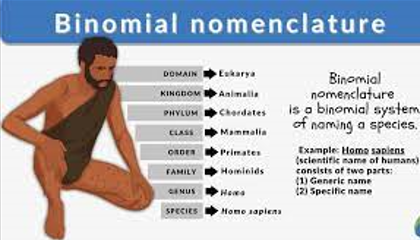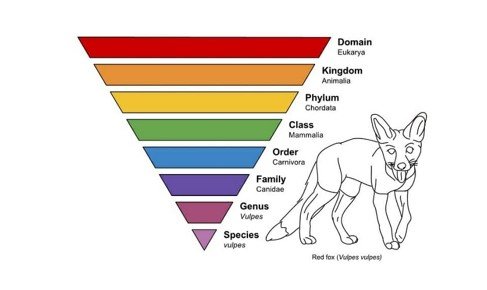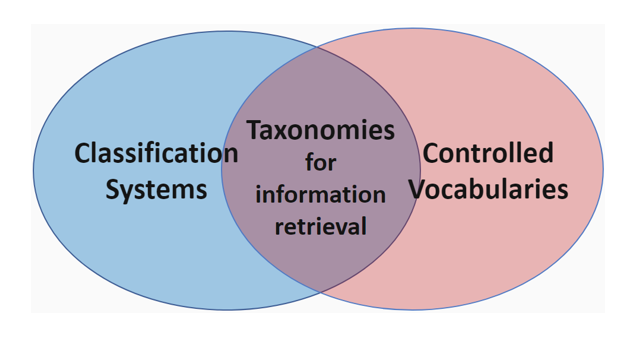Understanding Terminology Language Definitions in Different Fields
Welcome to the Fascinating World of Terminology!
If you've ever wondered how different industries and fields manage to communicate complex ideas so effectively, you're about to discover the secret: it's all in the names they use.
In our everyday lives, we often take for granted the words and phrases we use to describe things. But in specialized fields, from healthcare to computer science, the precise naming of concepts, processes, and objects is a critical tool for sharing knowledge and information.
Think of terminology as the art and science of naming. It's like creating a map that everyone agrees to use, ensuring that when one person says "apple," everyone else pictures the same juicy, red fruit and not, say, a banana.
This might sound simple, but in the complex world of professional and technical fields, having a shared language is crucial for clear communication.
In this article, we're going to explore the different ways that experts name and categorize the world around us.
From dictionaries that list words and their meanings to ontologies that delve into the deeper relationships between concepts, each system of naming, or 'terminology', has its unique role.
Whether you're a curious learner, a budding professional, or just someone who loves to know how things work, this journey through the world of terminology will give you a new appreciation for the power of words and the importance of getting them right.
So, let's dive in and unravel the mystery of how the right words can make all the difference in understanding our world!
Terminology - What Is It and What Does It Do?
Definition: A broad term for any system of naming, encompassing various levels of complexity.
Perspective: Widely favored for its versatility, 'terminology' is a catch-all phrase that comfortably encompasses the more technical aspects of naming systems. It's a term that finds its place across multiple disciplines, from linguistics to information technology, serving as a foundational concept in the study and application of specialized languages.
Example: In the field of medicine, 'terminology' refers to the specific language used by healthcare professionals. For instance, terms like 'myocardial infarction' instead of 'heart attack' are part of medical terminology. This specialized language ensures precise communication among medical professionals.
Compared To Others: It's like an umbrella term that can include all the other concepts listed here.
Terminology Nomenclature
Definition: A non-technical synonym for terminology, referring to an approach to naming things.
Perspective: 'Nomenclature' often appears in scientific and academic contexts, particularly where precise and systematic naming is crucial, such as in biology (biological nomenclature) or chemistry (chemical nomenclature). It's less about the structure of the naming system and more about the practice of assigning names within a particular field.
Example: In chemistry, the IUPAC nomenclature is a set of rules for naming chemical compounds. For example, the compound H₂O is commonly known as water, but its IUPAC name is 'dihydrogen monoxide'. This systematic approach to naming ensures consistency and clarity in the scientific community.
Compared To Terminology: It's less formal and more about the approach or style of naming rather than the specific system or rules.
Terminology Vocabulary
Definition: Another synonym for terminology.
Perspective: 'Vocabulary' is a term with a broad appeal, extending beyond technical or academic realms. It's commonly used in educational settings and everyday language to refer to the collection of words and phrases within a particular language or used by a specific group of people.
Compared To Nomenclature: More about the collection of terms themselves, rather than the approach to naming.
Terminology Dictionary
Definition: A list of phrases, typically with human-readable text definitions for each.
Example: In language learning, a student's vocabulary might include basic words like 'hello', 'goodbye', 'please', and 'thank you'. As they advance, their vocabulary expands to include more complex terms, aiding in more nuanced communication.
Perspective: Dictionaries are the cornerstone of language learning and usage, serving as a reference for understanding and using words correctly. They are essential in both educational and professional settings, providing clarity and standardization in language.
Example: A legal dictionary is used by law students and professionals to understand legal terms. For instance, the term 'tort' is defined in a legal dictionary as a wrongful act leading to civil legal liability. This helps in understanding and applying legal concepts correctly.
Compared To Vocabulary: A dictionary is a physical or digital product that contains a vocabulary.
Terminology Code List
Definition: A list of phrases where each is assigned a unique identifier, known as a code.
Perspective: Code lists are integral in fields like healthcare and information technology, where standardized codes are essential for categorizing and tracking various items, from medical conditions to product inventories.
Example: In healthcare, the ICD-10 code list is used for diagnosing and coding various medical conditions. For instance, the code 'E11.9' is used to denote Type 2 diabetes mellitus without complications, ensuring standardized communication across healthcare systems.
Compared To Dictionary: More structured; each item has a specific code, not just a definition.
Terminology Thesaurus
Definition: A code list that includes synonyms, with one name designated as the preferred term.
Perspective: Thesauri are valuable in writing and research, offering alternatives to enhance clarity and avoid repetition. They are particularly favored in literary and academic circles for enriching language use.
Example: In writing, a thesaurus might be used to find synonyms for the word 'happy', such as 'joyful', 'elated', or 'content'. This helps writers to vary their language and better convey their intended emotions or descriptions.
Compared To Code List: Adds the dimension of alternative names or synonyms for each code.
Terminology Taxonomy
Definition: A hierarchical thesaurus.
Perspective: Taxonomies are crucial in scientific disciplines, especially in biology for classifying organisms. They provide a structured way to understand the relationships and hierarchies within a set of terms or entities.
Example: In biology, the taxonomic classification system categorizes living organisms. For instance, humans are classified as Homo sapiens, where 'Homo' is the genus and 'sapiens' is the species. This system helps in understanding the evolutionary relationships between different organisms.
Compared To Thesaurus: Adds a layer of structure, showing how terms relate to each other in a hierarchy.
Terminology Classification
Definition: A mono-hierarchical taxonomy with specific categories like "other" and "unspecified."
Perspective: Classifications are widely used in administrative and regulatory contexts, such as in the International Classification of Diseases (ICD) in healthcare. They help in organizing information into clear, mutually exclusive categories for analysis and reporting.
Example: In libraries, the Dewey Decimal Classification is used to organize books on shelves. Each book is assigned a number, like 823.7 for British fiction, which helps patrons and librarians locate and categorize books efficiently.
Compared To Taxonomy: More rigid structure, with each term fitting into a single, clear category.
Terminology Ontology
Definition: A logically consistent taxonomy, available in stated and inferred forms.
Perspective: Ontologies are pivotal in advanced fields like artificial intelligence and data science. They provide a framework for modeling knowledge and relationships in a way that is understandable both to humans and machines, facilitating complex data analysis and decision-making processes.
Example: In artificial intelligence, an ontology might be used to model knowledge in a domain like robotics. It defines concepts like 'robot', 'sensor', and 'actuator', and their relationships, enabling AI systems to process and interpret complex data within that domain.
Compared To Classification: More complex, focusing not just on hierarchy but on the nature of the relationships and properties of terms.
Conclusion
As we wrap up our exploration into the intricate world of terminology, it's clear that the way we name and define things is more than just a matter of semantics. It's a fundamental aspect of how we share knowledge and build understanding across various fields and industries. From the simplest code list to the most complex ontology, each system of naming plays a pivotal role in shaping our perception and communication of ideas.
Whether it's a doctor using ICD codes to diagnose a patient, a librarian categorizing books using a taxonomy, or a computer scientist designing an ontology for artificial intelligence, the precision and clarity provided by these terminological tools are indispensable. They are the unsung heroes in the background, ensuring that every term, every code, and every classification enhances our ability to connect and communicate effectively.
As we continue to advance in technology and expand our horizons of knowledge, the importance of accurate and consistent terminology only grows. It's the bridge that connects human thought with digital innovation, allowing for seamless interaction between humans, machines, and the ever-expanding digital universe.
So, the next time you come across a technical term or a specialized vocabulary, remember the intricate world behind these words. They are more than just labels; they are the keys to unlocking a world of shared understanding and endless possibilities.
Thank you for joining us on this enlightening journey through the world of terminology. May your newfound knowledge inspire you to appreciate the power of words and the critical role they play in our interconnected world.









